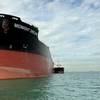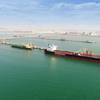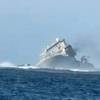Coast Guard to Participate in Small Vessel Security Summit
DHS will invite representatives from recreational boating organizations, operators of small commercial and fishing vessels, and other stakeholders to a two-day meeting in the Washington area to discuss options for improving maritime security. Other federal agencies expected to participate in the summit include Customs and Border Protection, the Transportation Security Administration, the Domestic Nuclear Detection Office, the FBI and others with an interest in security in the port environment. “We are continually looking for ways to improve maritime security, and consultation and collaboration with our stakeholders is an essential part of the process. We want to work together, consider all possibilities, and have those that will be affected by proposed solutions participate in the entire process,” said Allen.
Enhancing maritime security regimes is one of six priorities outlined in the publication “U.S. Coast Guard Strategy for Maritime Safety, Security and Stewardship” that was unveiled in February. Recently adopted regulations for large commercial vessels under the Maritime Transportation Security Act have significantly enhanced safety and security measures for commercial ships operating within U.S. waters, including vessel security plans, 96-hour advance notice of arrival, automated identification system requirements, and long-range tracking. “We’ve done a great deal in the wake of the 9/11 terrorist attacks to secure our ports from potential threats posed by commercial ships, but we know very little about the 77 million U.S. boaters or the 13 million recreational vessels that ply U.S. waters,” Allen said. “This leaves us extremely vulnerable to a USS Cole-style attack within one of our ports or waterways.” In making today’s announcement, Allen cited concerns such as effective control of the maritime border, unrestricted access to critical waterside infrastructure, and few existing standards in many states for ensuring minimum knowledge of maritime rules and regulations, operator proficiency, or identification requirements. “Enhancing maritime safety and security requirements now, before an incident occurs in one of our ports or waterways will not only save lives, but will also protect and preserve the efficient use and enjoyment of our waters for all mariners,” Allen said.












